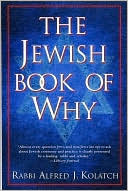Category Books
- Fiction Books & Literature
- Graphic Novels
- Horror
- Mystery & Crime
- Poetry
- Romance Books
- Science Fiction & Fantasy
- Thrillers
- Westerns
- Ages 0-2
- Ages 3-5
- Ages 6-8
- Ages 9-12
- Teens
- Children's Books
- African Americans
- Antiques & Collectibles
- Art, Architecture & Photography
- Bibles & Bible Studies
- Biography
- Business Books
- Christianity
- Computer Books & Technology Books
- Cookbooks, Food & Wine
- Crafts & Hobbies Books
- Education & Teaching
- Engineering
- Entertainment
- Foreign Languages
- Game Books
- Gay & Lesbian
- Health Books, Diet & Fitness Books
- History
- Home & Garden
- Humor Books
- Judaism & Judaica
- Law
- Medical Books
- New Age & Spirituality
- Nonfiction
- Parenting & Family
- Pets
- Philosophy
- Political Books & Current Events Books
- Psychology & Psychotherapy
- Reference
- Religion Books
- Science & Nature
- Self Improvement
- Sex & Relationships
- Social Sciences
- Sports & Adventure
- Study Guides & Test Prep
- Travel
- True Crime
- Weddings
- Women's Studies
The Jewish Book of Why »

Authors: Alfred J. Kolatch, Alfred J. Kolatch
ISBN-13: 9780824602567, ISBN-10: 0824602560
Format: Hardcover
Publisher: David, Jonathan Publishers, Incorporated
Date Published: September 1981
Edition: (Non-applicable)
Author Biography: Alfred J. Kolatch
Alfred J. Kolatch is a graduate of the Teacher's Institute of Yeshiva University and its College of Liberal Arts and is an ordained rabbi in the Jewish Theological Seminary of America. He is the author of numerous books, including The Jewish Home Advisor.
Book Synopsis
Why do Jews eat gefilte fish?
• Why is a glass broken at the end of a Jewish wedding ceremony?
• Why must the chapter of curses in the Torah be read quickly in a low voice?
• Why are shrimp and lobster not kosher?
• Why do Jews fast on Yom Kippur?
• Why are some Matzot square while others are round?
If you've ever asked or been asked any of these questions, The Jewish Book of Why has all the answers. In this complete, concise, fascinating, and thoroughly informative guide to Jewish life and tradition, Rabbi Alfred J. Kolatch clearly explains both the significance and the origin of nearly every symbol, custom, and practice known to Jewish culture-from Afikomon to Yarmulkes, and from Passover to Purim. Kolatch also dispels many of the prevalent misconceptions and misunderstandings that surround Jewish observance and provides a full and unfettered look at the biblical, historical, and sometimes superstitious reasons and rituals that helped develop Jewish law and custom and make Judaism not just a religion, but a way of life. L'chaim!
Publishers Weekly
This book is for Jews and Gentiles alike, offering an encyclopedic compendium of concise, cogent explanations of Jewish rituals and practices. Kolatch, a rabbi and author of Great Jewish Quotations, treats every facet of Jewish religious observance, including births, weddings and funerals, sabbath and synagogue, holidays from Passover to Purim and the intricacies of the Jewish calendar. He teases apart the variations that distinguish different Jewish communities and denominations, and carefully notes whether a practice derives from the Torah, the Talmudic law or custom. Kolatch's catechistic format fields queries about the grand imponderables ("Why is marriage such an important institution in Jewish life?") and the most exquisite niceties ("Why do some people remove their tefilin after concluding the Amida, and then immediately put on a second pair for the balance of the service?"). In answering such questions, he sticks to Jewish law and history; on the particularly vexed issue of Kosher dietary rules, he rejects speculation about nutritional or sanitary benefits and insists that their rationale lies in the Divine injunction of "holiness" and the Jews' destiny as a people apart. While there are alternatives to some of the explanations offered here, Kolatch writes in an erudite but straightforward style, providing an intelligent, loving introduction to Jewish tradition and culture. (Mar.) Copyright 2003 Reed Business Information.
Table of Contents
Subjects
 Judaism & Judaica
Judaism & Judaica  Customs, Practices, & Rituals - Judaism
Customs, Practices, & Rituals - JudaismChristianity
 Judaism & Judaica
Judaism & Judaica  General & Miscellaneous Judaism
General & Miscellaneous JudaismJudaism & Judaica
 Customs, Practices & Rituals - Judaism
Customs, Practices & Rituals - Judaism  Judaism -> Customs and practices
Judaism -> Customs and practicesReligion Books
 Judaism & Judaica
Judaism & Judaica  Customs, Practices, & Rituals - Judaism
Customs, Practices, & Rituals - JudaismReligion Books
 Judaism & Judaica
Judaism & Judaica  General & Miscellaneous Judaism
General & Miscellaneous JudaismChristianity
 Christianity
Christianity  All Religion
All ReligionNonfiction
 Religion
Religion  All Religion
All ReligionReligion Books
 Christianity
Christianity  All Religion
All Religion
